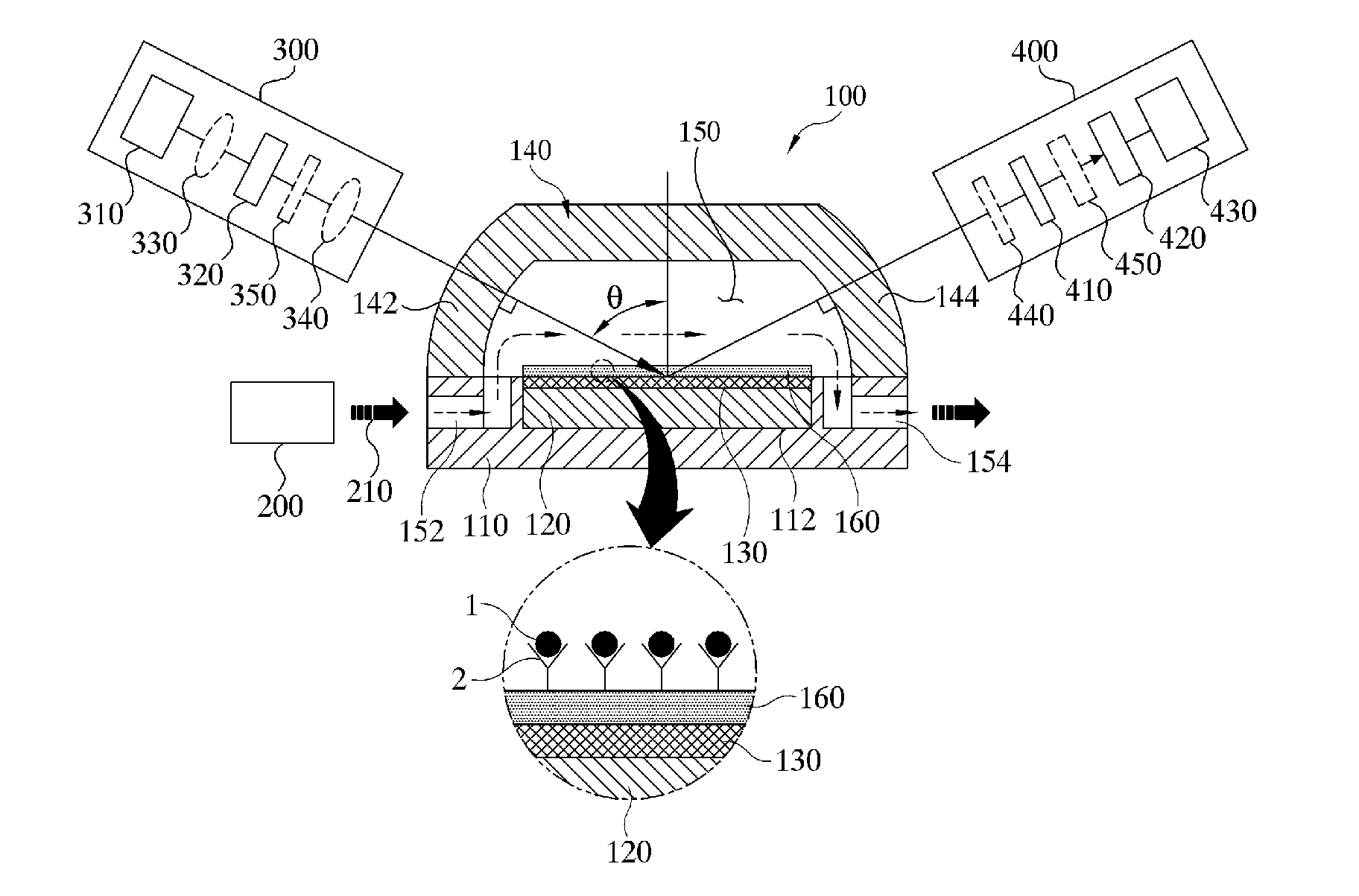Apparatus and method for simultaneously measuring characteristics of molecular junctions and refractive index of buffer solution
- Summary
- Abstract
- Description
- Claims
- Application Information
AI Technical Summary
Benefits of technology
Problems solved by technology
Method used
Image
Examples
experimental example
[0133]FIG. 11 is a graph illustrating a change of elliposmetric constants Ψ and Δ according to an incident angle at the perpendicular incident condition of the prior patent when the buffer solution (210) has different refractive indexes.
[0134]In this experiment, a wavelength of the light source (310) is 655 nm, a thickness of the bio-thin film adsorption layer including the self-assembled monolayer is 4 nm, and a refractive index (n) of the prism is 1.721 (SF10). In this case, an incident angle corresponding to the P-wave anti-reflection condition has been found to be around 70.85° where a value of the ellipsometric constant Ψ is dramatically changed.
[0135]In FIG. 11, the buffer solution (210) exhibits the refractive index of 1.3330 in the full-line graph, and the refractive index of 1.3332 in the dotted-line graph. The arched graph shows a change of the ellipsometric constant Ψ according to an amplitude ratio, and the linear graph shows a change of the ellipsometric constant Δ acco...
PUM
 Login to View More
Login to View More Abstract
Description
Claims
Application Information
 Login to View More
Login to View More - R&D
- Intellectual Property
- Life Sciences
- Materials
- Tech Scout
- Unparalleled Data Quality
- Higher Quality Content
- 60% Fewer Hallucinations
Browse by: Latest US Patents, China's latest patents, Technical Efficacy Thesaurus, Application Domain, Technology Topic, Popular Technical Reports.
© 2025 PatSnap. All rights reserved.Legal|Privacy policy|Modern Slavery Act Transparency Statement|Sitemap|About US| Contact US: help@patsnap.com



